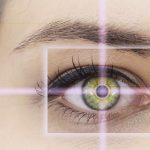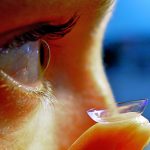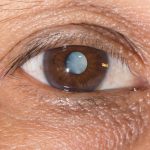Am I Too Old for LASIK?
Written by Dr. David Evans Last modified on August 1, 2019
I wish I had a nickel for every time someone asked me if they are too old for LASIK…
It’s a common misconception that there is an age cutoff for LASIK surgery. I know people in their 70’s who have had LASIK. The reality is that there’s only one age restriction: you have to be over the age of 18. In fact, the American Academy of Ophthalmology has noted that people over the age of 50 are increasingly gravitating towards LASIK surgery.
That’s not to say that age doesn’t factor into your LASIK candidacy; technically speaking, some of the things that might disqualify your candidacy are related to your age.
Our eyes continuously change throughout life. People under the age of 18 are not recommended for LASIK because their vision has not yet had a chance to stabilize. Many surgeons actually recommend waiting until your mid-20’s to consider laser eye surgery for this very reason.

People aged 40 and older are at greater risk of presbyopia which causes blurred near vision. This can limit the effectiveness of traditional LASIK surgery (which cannot treat presbyopia), but there are alternative corrective options such as monovision or multifocal LASIK.
As we continue to age, we are at greater risk of other vision changes that can be disqualifying factors for LASIK.
LASIK Over 50, 60 and Beyond
People aged 50 and older are at a greater risk of macular degeneration, a condition marked by deterioration of the retina and a loss of visual acuity. And people aged 60 and older are at a greater risk for cataracts and glaucoma, which cloud the lens of the eye and damage the optic nerve respectively.
But there are plenty of people in their 40’s, 50’s, 60’s and beyond who have relatively healthy eyes and therefore may still be perfectly good candidates for LASIK.
So the idea that there is an upper-age limit for treatment is simply false. You’re never too old for LASIK if your eyes are healthy enough.
So what does disqualify your candidacy?
Eye Health – Eye disease like cataracts, glaucoma, keratoconus, corneal disease, dry eye syndrome, amblyopia, etc.
Vision Stability – Your prescription must be stable for at least one year prior to surgery
General Health – Diabetes, autoimmune disorders and other general health problems
Eye Injury – Injuries to the eye or untreated infections
Pregnancy – If you are pregnant or nursing
Contact Lens Wearers – Contact lenses must not be worn for a time specified by your surgeon prior to LASIK
If you are unsure of whether or not you are a candidate for LASIK surgery, setup a screening with an ophthalmologist for a thorough evaluation.
You can also check out our “Are You a Candidate for LASIK?” slideshow for more detailed information.




